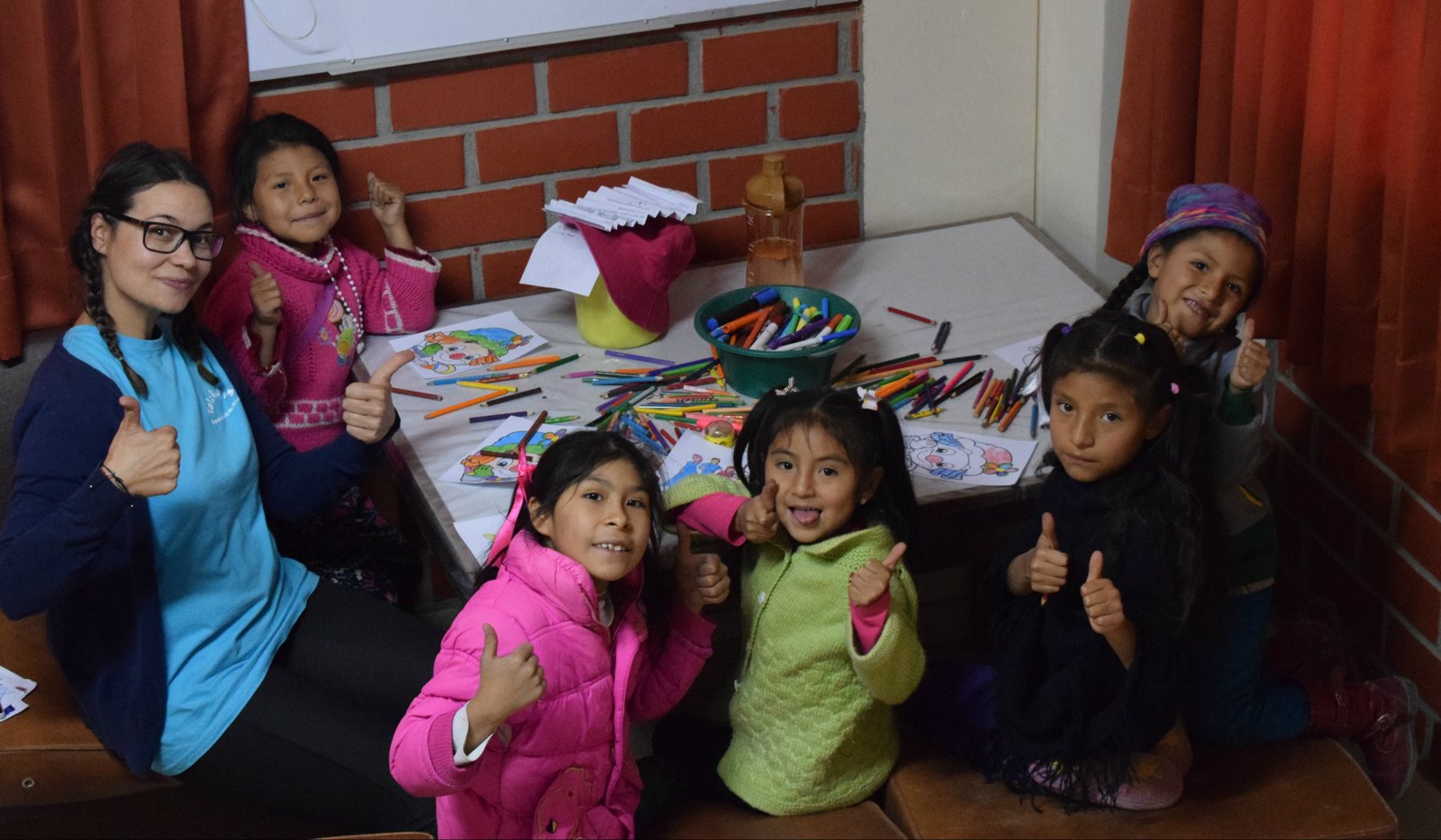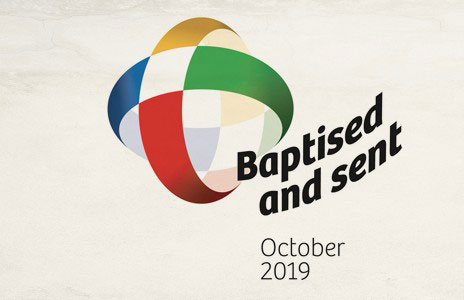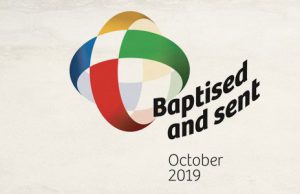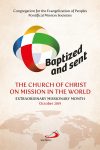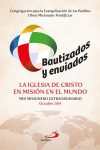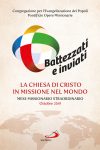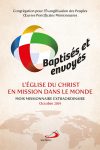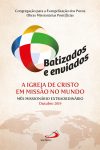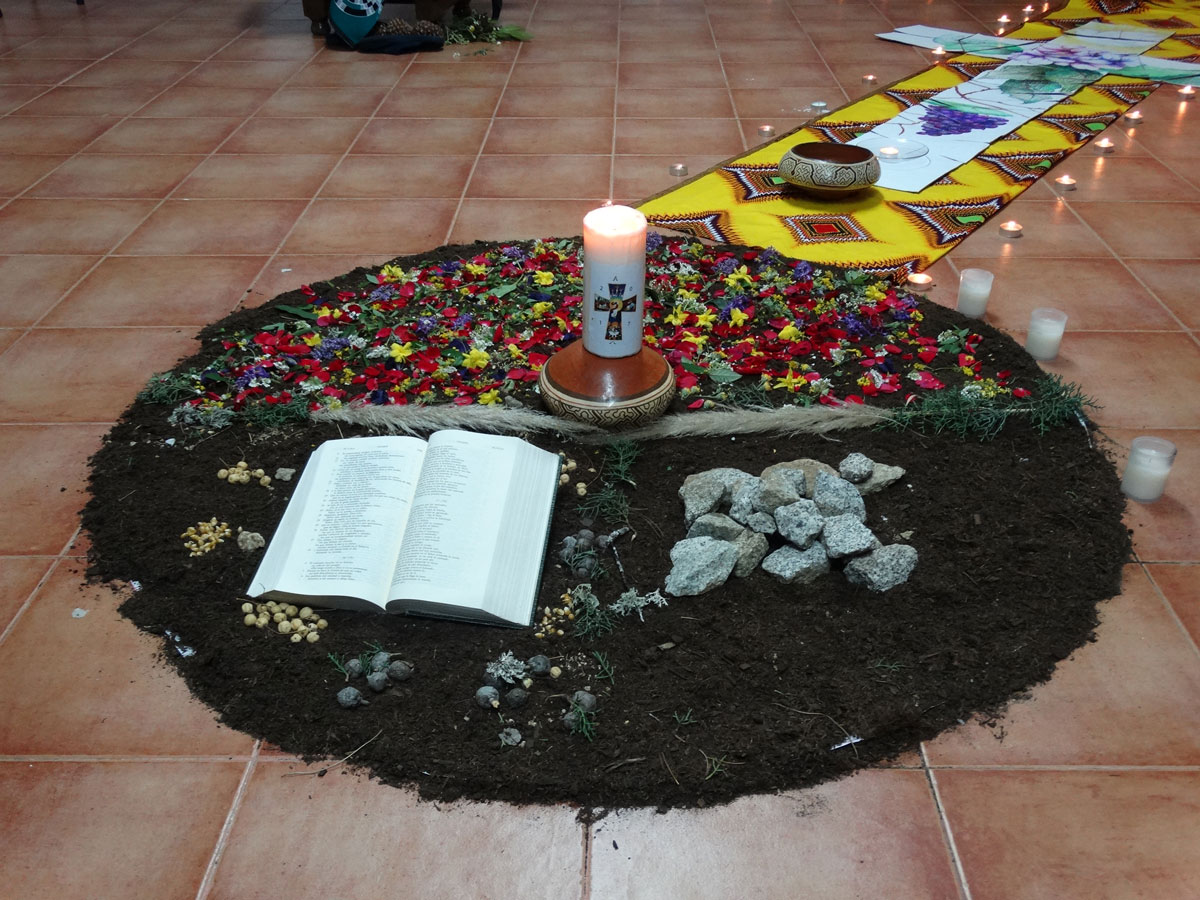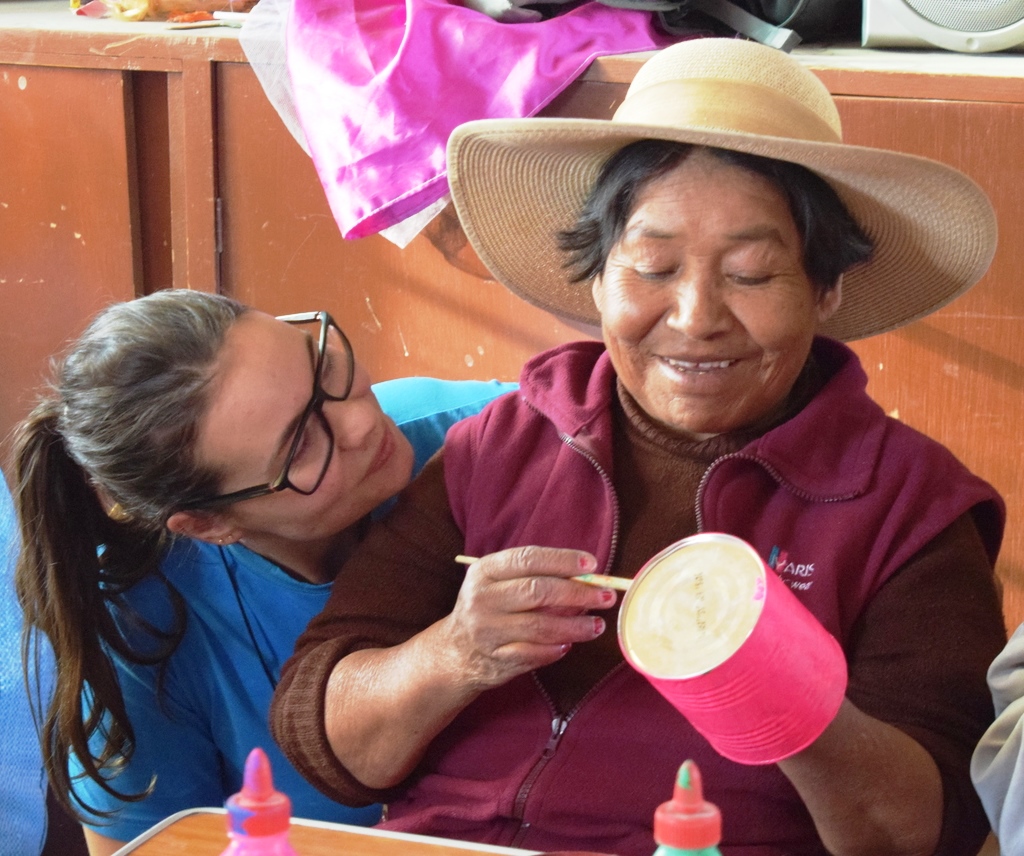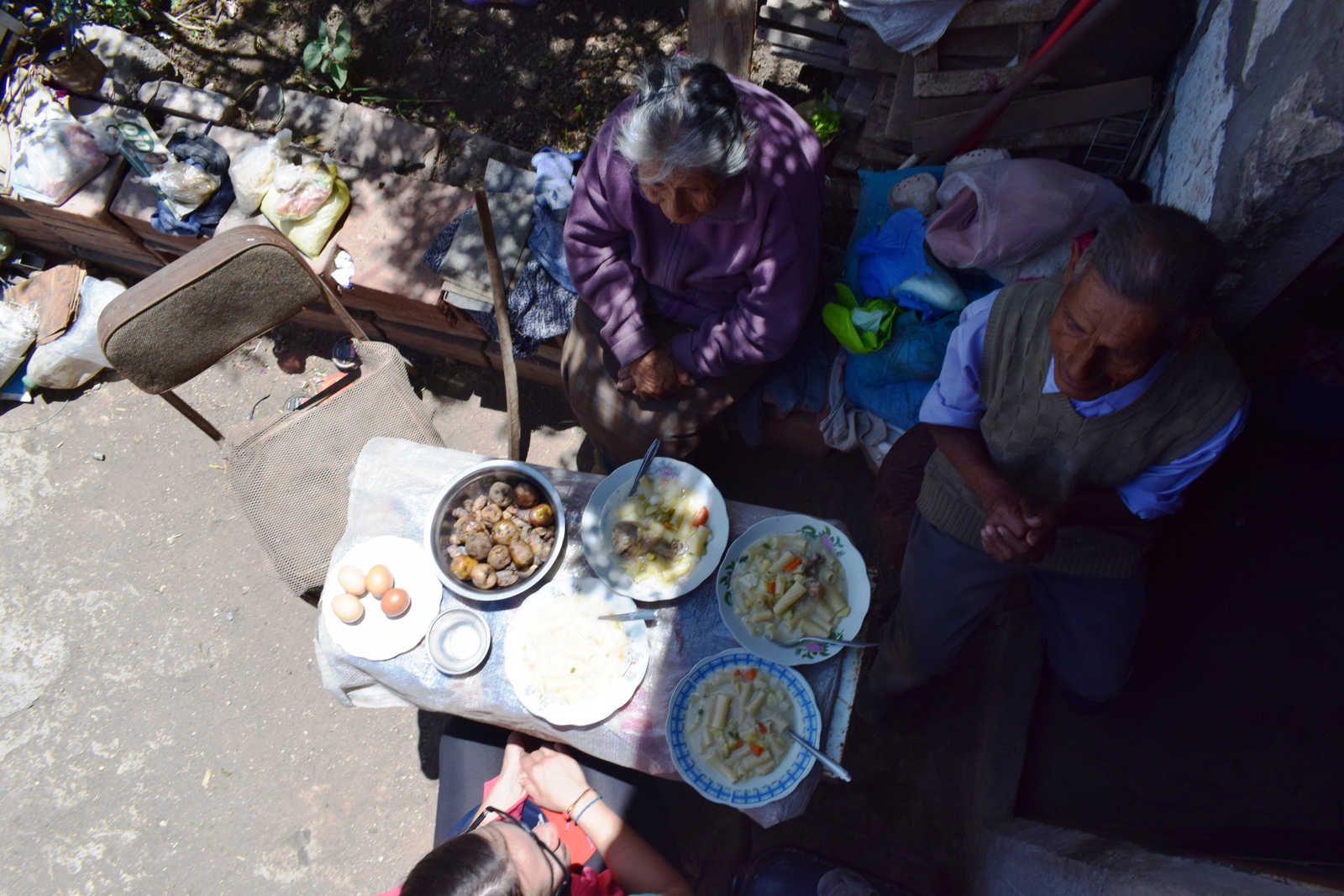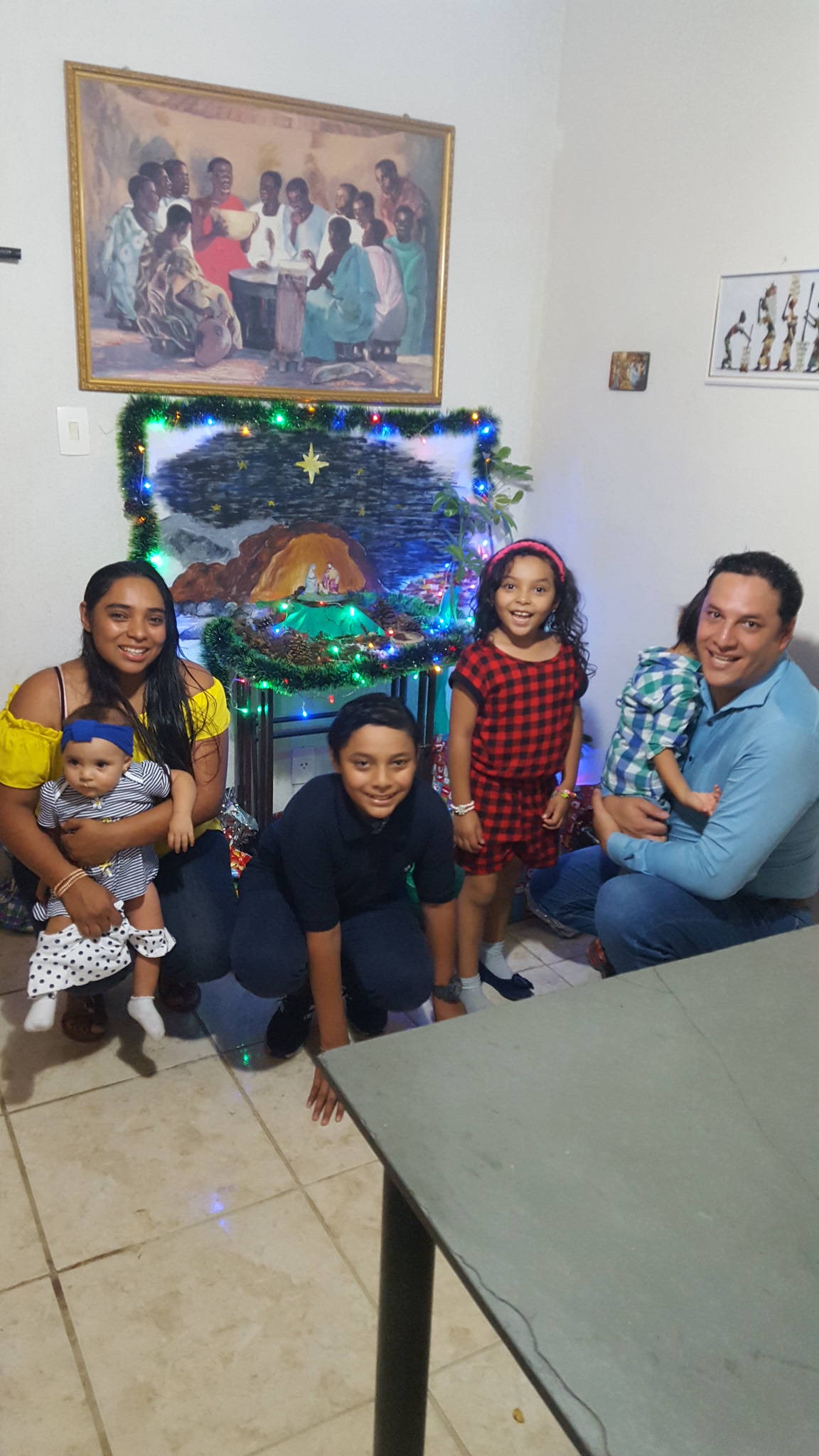
For the Glory of God we have been here a month and a half. We thank ALL the people we know, who consequently are a part of our lives and of this project of life, whom we constantly place in the Lord’s hands.
By the grace of God we have been adapting within the Brazilian community, especially in Ipê Amarelo. Above all, it never ceases to surprise us how God already was here, namely, God always takes the initiative and no one is ever excluded from him, as we realize it over and over just by our being here, so far from the earthly place where we were born and lived, but where others live: my brother, my brothers.
During this time we joyfully celebrated the 60th birthday of Lourdes Viera. She has been a tireless CLM and charter founder of the CLM in Brazil for about 20 years ago.
For us as a family having her is a great blessing, she is our Vovó, especially to the children. She has been introducing us with great energy and with great charity to this community and to mission life in general.
We also celebrated Christmas (Natal in Portuguese) with great joy and enthusiasm because it was our first Christmas away from our home and our family. By God’s grace our children spent it in a normal and happy way. God’s gift is the fact that our being together is our greatest strength.
Gratefully, the CLM family of Alejo and Tere de Ramirez, who have provided a lot of inspiration for us over the years, decided to spend Christmas here at home. In fact, we had not known them up to now, because we had only seen a picture of them four years ago. They, too, have been part of the CLM for about 20 years, and even though they could never leave their country, they did it in the way God asks us to do it on a daily basis: moving from within themselves towards the others and for the others as a family, like many others who have not been able or have chosen not to leave. They are a beautiful couple with three daughters, and they have worked in the spiritual formation of many CLM and are an example of Christian life to be followed.
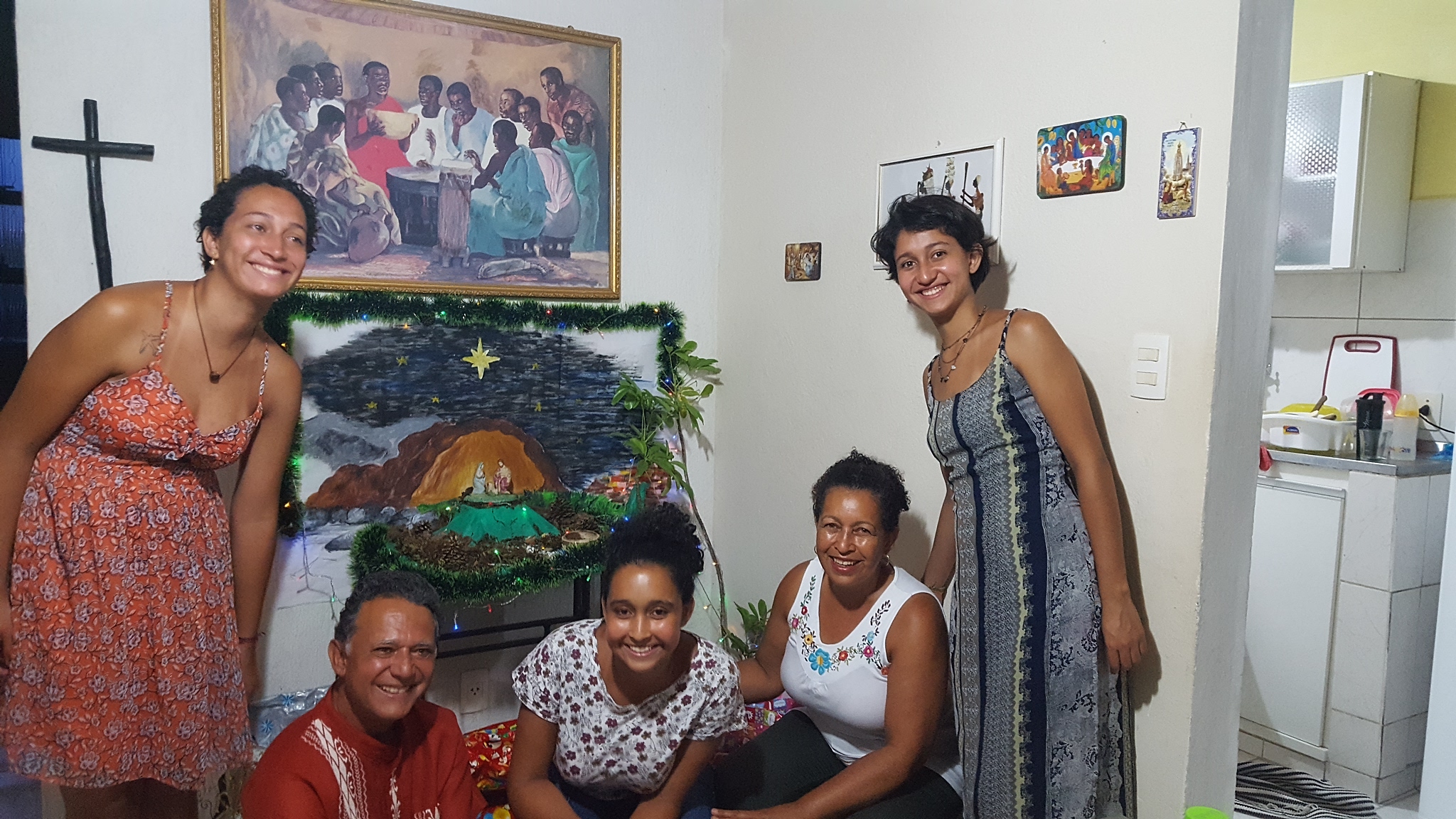 We are grateful to God for the coming of the New Year when we had the opportunity to spend it at home as a family, which is what we personally like to do. It gave us time to talk about all the blessings we have received from God our Father during the year that just ended. The best moment was to be able to exchange blessings, each one of us personally to recognize ourselves as a united family blessed by God now and forever. You may ask? Are the children aware of what is happening and of what they are doing? As it is for many things in life, this is not an exact science, but we are together and, from Lucia, the smallest, to Esteban, who is the most aware, each one is valuable, important, worthy, loved, and they know it and this is how we feel towards them: Our most cherished treasure!
We are grateful to God for the coming of the New Year when we had the opportunity to spend it at home as a family, which is what we personally like to do. It gave us time to talk about all the blessings we have received from God our Father during the year that just ended. The best moment was to be able to exchange blessings, each one of us personally to recognize ourselves as a united family blessed by God now and forever. You may ask? Are the children aware of what is happening and of what they are doing? As it is for many things in life, this is not an exact science, but we are together and, from Lucia, the smallest, to Esteban, who is the most aware, each one is valuable, important, worthy, loved, and they know it and this is how we feel towards them: Our most cherished treasure!
Our local pastor here in Brazil, Fr. Agustinho, already said it during the last Sunday of the year, dedicated to the Holy Family: “the family is the best hospital, the best doctor, the best school, the place where we live in love, a place we have in common.”
We wish you all a Blessed Beginning of this Year of Humankind and a blessed life, as we entrust ourselves to the hand of God and to your prayers. We say good-bye to you with the blessing that our Father gives us through the Church every year to enable us to start anew:
“The Lord bless you and keep you;
The Lord make his face shine upon you and be gracious to you;
The Lord lift up his face upon you and give you peace.” (Num 6:24-26)
The Camey Family, CLM in Brazil




